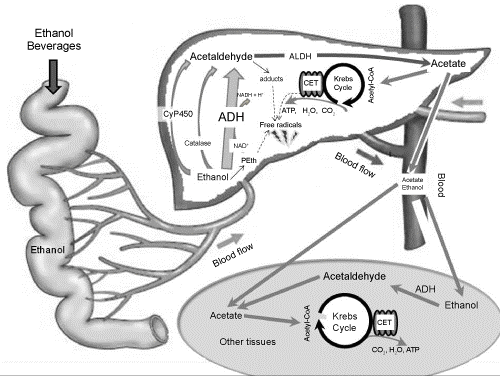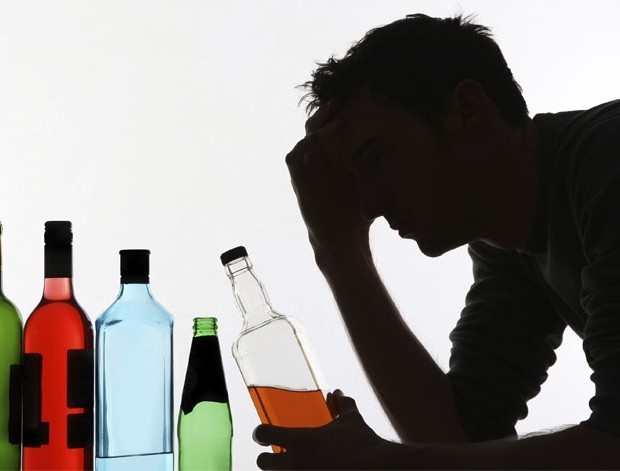Alcoholism, also known as dependence on alcohol or alcohol use disorder, occurs when you drink so much that your body eventually becomes dependent on, or addicted to alcohol. Alcoholism can be defined as a physical compulsion, together with a mental obsession. It is specific type of addiction. There is no single cause for alcohol addiction and may be grouped into four broad categories. The cause for alcoholism may be classified into biological, psychological, socio-culture, and spiritual. Psychologists have a term for it; they call it the bio-psycho-spiritual model of addiction. In case of alcoholism the causes are either directly or indirectly interconnected. Therefore, each of these four factors contributes in some manner to the formation of addiction.
Alcoholism is matter of great concern in today’s society. Alcohol related deaths and deaths caused by diseases due to alcoholism have increased significantly in our country. According to the World Health Organization (WHO), alcoholism in teenagers is also seen to be on an alarming high. The global status report on alcohol and health 2014, revealed by the WHO, states that the amount of alcohol consumption has risen in India between 2008 to 2012.The given report was compiled by taking into account individuals over the age of 15 and above, who consumed alcohol. According to the report, in the year 2010, around 30% of the total population of India consumed alcohol. The figure has increased since then.
93% of alcohol consumed was in the form of spirits, followed by beer at 7% and less than 1% of the population consumed wine. The per capita consumption of alcohol in the country increased from 1.6 liters from the period of 2003-2005, to 2.2 liters from the period of 2010-2012. An average individual over the age of 15 consumed over 8 liters of alcohol per annum in the south Indian states followed by Maharashtra and Punjab. It was also revealed that over 11% of the population in India indulged in heavy or binge-drinking. The global figure stood at 16%. On the ‘Years of Life Lost’ scale, which is based on alcohol-attributable years of life lost, India has been rated 4 on a scale of 1 to 5. This implies that the alcohol consuming population of our country loses most years of their life because of drinking and its consequences.
Abusing alcohol makes drinking as a central activity of life, displacing healthy activity and relationships, and resulting in negative consequences. Let us understand how that few milliliters of alcohol works on our bodies and why it is something that needs our attention.
How alcohol acts on our body
When people take the first sip of alcohol, it travels through the food pipe to the stomach and into our blood stream, reaching the heart, brain, muscles and other tissues. This happens very quickly – within a few minutes. It affects the nerves that pass messages around the body slowing things down. Ethanol is the intoxicating part of alcohol and its molecules are so small that they can actually pass into the gaps between the brain cells. Here they interfere with the neurotransmitters (the brain’s central system) that govern all the brain’s activities; the more you drink the greater the effect. Alcohol affects the parts of the brain that is responsible for self-control, and you may become uncoordinated or unsteady on your feet. Your speech may get slurred and you may start seeing double. This is reason why people are livelier when they had a drink or two. You may also experience strong emotional responses – for instance you may become aggressive or tearful and because your judgement is impaired, you may do things that you might not normally do – from dancing on the streets, to going home with strangers. A young person, or somebody unused to drinking may experience this after just a few standard drinks taken in one go. Fortunately, alcohol gives warning signs at each level of penetration into the brain so, if you spot the signs, moderate your drinking, or stop altogether.

Our Body’s reaction to alcohol
Our body sees alcohol as poisonous substance and doesn’t store alcohol. The body through a complex metabolic process breaks down alcohol. The Liver primarily does this part of the process. It firstly changes alcohol into Acetaldehyde. Then acetaldehyde is converted into acetate, which then changes to carbon dioxide and water, which are then simply excreted from a body. About 90-95% of alcohol consumed is metabolized by the liver. The remaining 5-10% is excreted through urine, breath and sweat. The body’s ability to process alcohol depends on a various things, such as age, weight and sex of an individual.
The body resolves alcohol at a rate of roughly one standard drink per hour. Because it takes time for your body to break down alcohol, drinking more than one unit of alcohol an hour will build up your blood alcohol concentration (BAC). If you drink faster than one standard drink an hour, alcohol will start to interfere brain functioning. Depending on what limit you have and how fast you’re drinking, it can affect the brain stem (even cause it to shut down) and this can interfere with vital body functions or even cause death.
BAC (Body Alcohol Concentration) also depends on the body fluid that you have. In comparison, Women have proportionally less body water than  men, so the concentration of alcohol in their blood stream is proportionately higher. There is also some evidence that women may metabolize alcohol slightly differently. There are small amounts of the enzymes called ADH, which are responsible for breaking down alcohol in the liver. The ADH levels are lower in women and that this might contribute to their higher blood alcohol levels.
men, so the concentration of alcohol in their blood stream is proportionately higher. There is also some evidence that women may metabolize alcohol slightly differently. There are small amounts of the enzymes called ADH, which are responsible for breaking down alcohol in the liver. The ADH levels are lower in women and that this might contribute to their higher blood alcohol levels.
Progressive increases in the frequency and quantity of alcohol consumption can begin to produce serious medical issues, which may result in interventional procedures, transplants or life long ailment and dependence on medicines.
